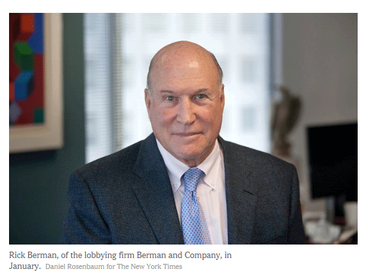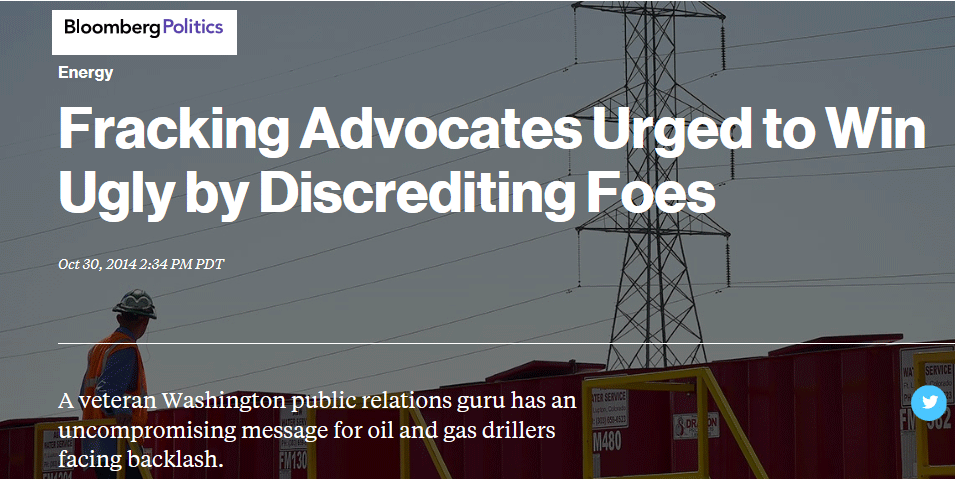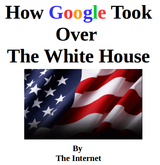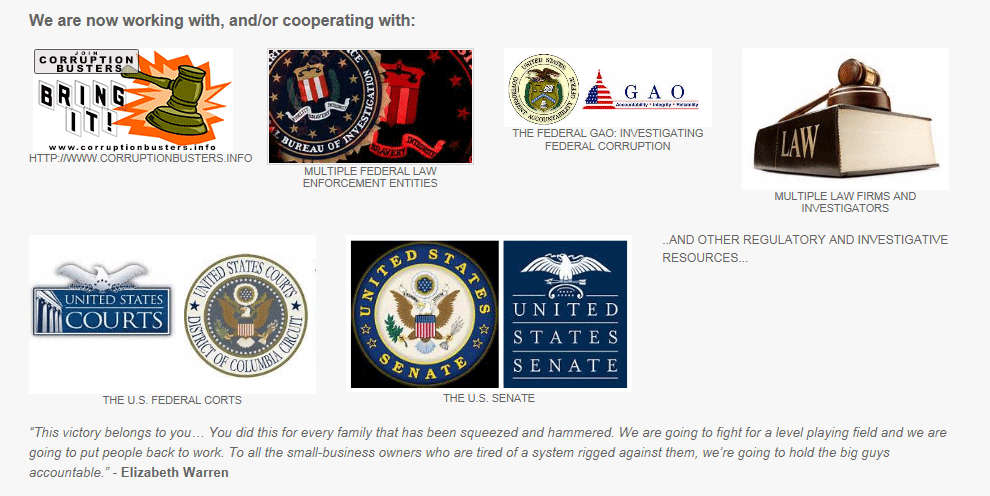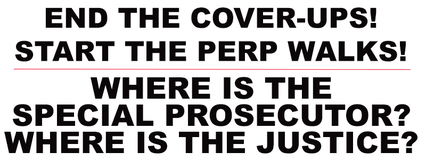The "Sidney Blumenfeld" of Energy; Character Assassination King preaches Kill-Them-All approach to media
Bare-Knuckled Advice From Veteran Lobbyist: ‘Win Ugly or Lose Pretty’
Richard Berman Energy Industry Talk Secretly Taped
By ERIC LIPTONOCT. 30, 2014
Bare-Knuckled Advice From Veteran Lobbyist: ‘Win Ugly or Lose Pretty’
Richard Berman Energy Industry Talk Secretly Taped
By ERIC LIPTONOCT. 30, 2014
WASHINGTON — If the oil and gas industry wants to prevent its opponents from slowing its efforts to drill in more places, it must be prepared to employ tactics like digging up embarrassing tidbits about environmentalists and liberal celebrities, a veteran Washington political consultant told a room full of industry executives in a speech that was secretly recorded.
The blunt advice from the consultant, Richard Berman, the founder and chief executive of the Washington-based Berman and Company consulting firm, came as Mr. Berman solicited up to $3 million from oil and gas industry executives to finance an advertising and public relations campaign dubbed Big Green Radicals.
The company executives, Mr. Berman said in his speech, must be willing to exploit emotions like fear, greed and anger and turn it against the environmental groups. And major corporations secretly financing such a campaign should not worry about offending the general public because “you can either win ugly or lose pretty,” he said.
The blunt advice from the consultant, Richard Berman, the founder and chief executive of the Washington-based Berman and Company consulting firm, came as Mr. Berman solicited up to $3 million from oil and gas industry executives to finance an advertising and public relations campaign dubbed Big Green Radicals.
The company executives, Mr. Berman said in his speech, must be willing to exploit emotions like fear, greed and anger and turn it against the environmental groups. And major corporations secretly financing such a campaign should not worry about offending the general public because “you can either win ugly or lose pretty,” he said.
“Think of this as an endless war,” Mr. Berman told the crowd at the June event in Colorado Springs, sponsored by the Western Energy Alliance, a group whose members include Devon Energy, Halliburton and Anadarko Petroleum, which specialize in extracting oil and gas through hydraulic fracturing, also known as fracking. “And you have to budget for it.”
What Mr. Berman did not know — and what could now complicate his task of marginalizing environmental groups that want to impose limits on fracking — is that one of the energy industry executives recorded his remarks and was offended by them.
“That you have to play dirty to win,” said the executive, who provided a copy of the recording and the meeting agenda to The New York Times, under the condition that his identity not be revealed. “It just left a bad taste in my mouth.”
Mr. Berman had flown to Colorado with Jack Hubbard, a vice president at Mr. Berman’s firm, Berman & Company, to discuss their newest public relations campaign, Big Green Radicals, which has already placed a series of intentionally controversial advertisements in Pennsylvania and Colorado, two states where the debate over fracking has been particularly intense. It has also paid to place the media campaign on websites serving national and Washington audiences.
A spokeswoman for Mr. Berman confirmed that he gave the speech, but said he would have no comment on its contents.
Mr. Berman is well known in Washington for his technique of creating nonprofit groups like the Center for Consumer Freedom that secretly collect corporate donations to finance the aggressive, often satirical media campaigns his team conceives. They are intended to undermine his opponents, like labor unions or animal rights groups that have tried to spotlight the treatment of animals at meatpacking plants.
“I get up every morning and I try to figure out how to screw with the labor unions — that’s my offense,” Mr. Berman said in his speech to the Western Energy Alliance. “I am just trying to figure out how I am going to reduce their brand.”
Mr. Berman offered several pointers from his playbook.
“If you want a video to go viral, have kids or animals,” he said, and then he showed a spot his company had prepared using schoolchildren as participants in a mock union election — to suggest that union bosses do not have real elections.
“Use humor to minimize or marginalize the people on the other side,” he added.
“There is nothing the public likes more than tearing down celebrities and playing up the hypocrisy angle,” his colleague, Mr. Hubbard, said, citing billboard advertisements planned for Pennsylvania that featured the actor and environmentalist Robert Redford. “Demands green living,” they read. “Flies on private jets.”
------------------------
PUBLIC COMMENTS:
'The company executives, Mr. Berman said in his speech, must be willing to exploit emotions like fear, greed and anger and turn it against...
------------------------
From Wikipedia:Though Berman and Company does not publicly name its clients, 60 Minutes obtained a list of companies that funded the Center...
------------------------
Bergman represents the ethical, business school standards of industry. Cheat, lie, pay others less so there is more for yourself. Finally...
Mr. Hubbard also discussed how he had done detailed research on the personal histories of members of the boards of the Sierra Club and the Natural Resources Defense Council to try to find information that could be used to embarrass them.
But the speech, given in June at the Broadmoor Hotel and Resort, where the Western Energy Alliance held its 2014 annual meeting, could end up bringing a new round of scrutiny to Mr. Berman and the vast network of nonprofit groups and think tanks he runs out of his downtown Washington office.
Mr. Berman repeatedly boasted about how he could take checks from the oil and gas industry executives — he said he had already collected six-figure contributions from some of the executives in the room — and then hide their role in funding his campaigns.
“People always ask me one question all the time: ‘How do I know that I won’t be found out as a supporter of what you’re doing?' " Mr. Berman told the crowd. “We run all of this stuff through nonprofit organizations that are insulated from having to disclose donors. There is total anonymity. People don’t know who supports us.”
What is unclear is if the hardball tactics that Mr. Berman has pitched will succeed in places like Colorado. Already, The Denver Post editorial page, generally supportive of the oil and gas industry, has criticized Mr. Berman’s tactics, calling one video spot — featuring fictitious environmentalists who debate if the moon is made of cheese before calling for a ban on fracking — “a cheap shot at fracking foes.”
But Mr. Berman probably appreciated the criticism. As he explained in his remarks, what matters is increasing the number of people who see his work, which is part of the reason he intentionally tries to offend people in his media campaigns.
“They characterize us in a campaign as being the guys with the black helicopters,” he explained. “And to some degree, that’s true. We’re doing stuff to diminish the other sides’ ability to operate.”
What Mr. Berman did not know — and what could now complicate his task of marginalizing environmental groups that want to impose limits on fracking — is that one of the energy industry executives recorded his remarks and was offended by them.
“That you have to play dirty to win,” said the executive, who provided a copy of the recording and the meeting agenda to The New York Times, under the condition that his identity not be revealed. “It just left a bad taste in my mouth.”
Mr. Berman had flown to Colorado with Jack Hubbard, a vice president at Mr. Berman’s firm, Berman & Company, to discuss their newest public relations campaign, Big Green Radicals, which has already placed a series of intentionally controversial advertisements in Pennsylvania and Colorado, two states where the debate over fracking has been particularly intense. It has also paid to place the media campaign on websites serving national and Washington audiences.
A spokeswoman for Mr. Berman confirmed that he gave the speech, but said he would have no comment on its contents.
Mr. Berman is well known in Washington for his technique of creating nonprofit groups like the Center for Consumer Freedom that secretly collect corporate donations to finance the aggressive, often satirical media campaigns his team conceives. They are intended to undermine his opponents, like labor unions or animal rights groups that have tried to spotlight the treatment of animals at meatpacking plants.
“I get up every morning and I try to figure out how to screw with the labor unions — that’s my offense,” Mr. Berman said in his speech to the Western Energy Alliance. “I am just trying to figure out how I am going to reduce their brand.”
Mr. Berman offered several pointers from his playbook.
“If you want a video to go viral, have kids or animals,” he said, and then he showed a spot his company had prepared using schoolchildren as participants in a mock union election — to suggest that union bosses do not have real elections.
“Use humor to minimize or marginalize the people on the other side,” he added.
“There is nothing the public likes more than tearing down celebrities and playing up the hypocrisy angle,” his colleague, Mr. Hubbard, said, citing billboard advertisements planned for Pennsylvania that featured the actor and environmentalist Robert Redford. “Demands green living,” they read. “Flies on private jets.”
------------------------
PUBLIC COMMENTS:
'The company executives, Mr. Berman said in his speech, must be willing to exploit emotions like fear, greed and anger and turn it against...
------------------------
From Wikipedia:Though Berman and Company does not publicly name its clients, 60 Minutes obtained a list of companies that funded the Center...
------------------------
Bergman represents the ethical, business school standards of industry. Cheat, lie, pay others less so there is more for yourself. Finally...
Mr. Hubbard also discussed how he had done detailed research on the personal histories of members of the boards of the Sierra Club and the Natural Resources Defense Council to try to find information that could be used to embarrass them.
But the speech, given in June at the Broadmoor Hotel and Resort, where the Western Energy Alliance held its 2014 annual meeting, could end up bringing a new round of scrutiny to Mr. Berman and the vast network of nonprofit groups and think tanks he runs out of his downtown Washington office.
Mr. Berman repeatedly boasted about how he could take checks from the oil and gas industry executives — he said he had already collected six-figure contributions from some of the executives in the room — and then hide their role in funding his campaigns.
“People always ask me one question all the time: ‘How do I know that I won’t be found out as a supporter of what you’re doing?' " Mr. Berman told the crowd. “We run all of this stuff through nonprofit organizations that are insulated from having to disclose donors. There is total anonymity. People don’t know who supports us.”
What is unclear is if the hardball tactics that Mr. Berman has pitched will succeed in places like Colorado. Already, The Denver Post editorial page, generally supportive of the oil and gas industry, has criticized Mr. Berman’s tactics, calling one video spot — featuring fictitious environmentalists who debate if the moon is made of cheese before calling for a ban on fracking — “a cheap shot at fracking foes.”
But Mr. Berman probably appreciated the criticism. As he explained in his remarks, what matters is increasing the number of people who see his work, which is part of the reason he intentionally tries to offend people in his media campaigns.
“They characterize us in a campaign as being the guys with the black helicopters,” he explained. “And to some degree, that’s true. We’re doing stuff to diminish the other sides’ ability to operate.”
Oct. 31 (Bloomberg) -By Mark Drajem For Bloomberg- As he took the floor at the tony Broadmoor resort in Colorado Springs, the veteran Washington public relations guru had an uncompromising message for oil and gas drillers facing an anti-fracking backlash.
“You can either win ugly or lose pretty. You figure out where you want to be,” Rick Berman told the Western Energy Alliance, according to a recording. “Hardball is something that I’m a big fan of, applied appropriately.”
Berman has gained prominence, including a “60 Minutes” profile, for playing hardball with animal activists, labor unions and even Mothers Against Drunk Driving. In Colorado, he was offering to take on environmentalists pushing restrictions on hydraulic fracturing, or fracking.
“Think of it as endless war.”
—Rick Berman
The fight over fracking in the state has been viewed as a bellwether for similar debates brewing from New York to Sacramento. Energy companies are lobbying against a slew of regulations, including ones setting safety rules for fracking on public lands and another capping carbon emissions from power plants.
That partly explains why energy and resources companies, including Koch Industries Inc., Exxon Mobil Corp. and Murray Energy Corp. are spending lavishly on political campaigns this year. The Center for Responsive Politics data shows the industry will contribute an amount second only to its record $143 million leading up to the 2012 election. So far they have given $95.5 million to candidates and political committees.
‘Dream World’
Industry supporters say they have no choice. They face a well-funded environmental campaign from groups such as the Sierra Club that threaten to endanger the boom in production and domestic manufacturing that followed the shale revolution.
“There is an anti-fossil fuel movement, and a very well-funded lobbying campaign is behind it,” said Michael Krancer, Pennsylvania’s former top natural-gas regulator and an energy attorney at Blank Rome LLP in Philadelphia. “These are people who want to live in a dream world.”
At the June session in Colorado with executives from Halliburton Co., Exxon and Devon Energy Corp., Berman offered companies a way to anonymously target their environmental foes - - at a cost of as much as $3 million. The recording, provided to Bloomberg by an environmental advocate who got it from an attendee, shows an unvarnished look at what Berman promises companies in pitching for their business.
He said his campaign would follow the playbook from his earlier efforts: attacks on the hypocrisy of adversaries, an undercurrent of absurdist humor and the promise of anonymity for the companies behind it. The recording makes it clear that Berman is pitching for their business, and says some companies have already funded the campaign with “six-figure” payments.
Anadarko, Noble
“Think of it as endless war,” he said.
Berman and Tim Wigley, president of the Western Energy Alliance, a Denver-based trade group, didn’t return telephone messages asking about his pitch. Sarah Longwell, a spokeswoman for Berman & Co., said Berman declined to comment.
“We are not confident in the objectivity of your reporting,” Longwell told a reporter. “If you have the recording, then you can use that.”
Anadarko Petroleum Corp. and Noble Energy Inc., two of the largest producers in the state, each had executives at the meeting, but their spokespeople said they didn’t bankroll Berman’s advertising campaign. They have formed a separate educational campaign aimed at explaining fracking, in which water, sand and chemicals are shot underground to free oil and gas from rock formations.
Halliburton, the world’s biggest provider of fracking services, also had an executive at the meeting, according to an attendance list obtained by Bloomberg. Emily Mir, a company spokeswoman, said it hasn’t funded the Berman campaign either.
‘Fear and Anger’
For the Colorado part, Berman said it would cost $2 million to $3 million to run the kind of public relations campaign necessary to defeat proposed anti-fracking referendums, which have since been delayed. That money would be spent in addition to the “positive campaign” companies were running, he said.
“Fear and anger have to be part of this campaign,” Berman told them. “You have to get people fearful about what is on the table, and you have to get people angry that they are being misled.”
Tapping those emotions requires a dose of humor, he said.
He played an advertisement that showed one activist blaming fracking for his overeating and another for the fact that his sock-puppet, Mr. Snuggles, was ignoring him. The ad was posted online and ran on television a few weeks later, according to a Denver Post article.
Getting Message
“We like to use humor because humor doesn’t offend people and at the same time they get the message,” Berman said, according to the tape of the June meeting.
Jack Hubbard, a Berman & Co. vice president, told the audience that the work in Colorado flowed out of a national campaign that had begun some months earlier. That was after some companies provided funding to start “Big Green Radicals,” which goes after environmental groups such as the Sierra Club and the Natural Resources Defense Council.
Hubbard declined to comment for this story.
Berman’s opposition researchers, who Hubbard called the best in the nation, dug into the finances of board members of those groups and issued ads, both online and on billboards, mocking them.
One billboard in Pennsylvania showed a picture of actor Robert Redford, who’s on the board of the Natural Resources Defense Council, and stated: “Demands green living. Flies on a private jet.”
Another shows anti-fracking activist Yoko Ono: “Would you take energy advice from the woman who broke up the Beatles?”
Attacking Messenger
Environmental groups said they were initially worried about the attacks, but found they didn’t gain much traction with the public or press.
“This really is an effort to go after the messenger,” Josh Mogerman, an NRDC spokesman, said. “I don’t think these campaigns have gotten a lot of attention.”
As he has in previous drives against raising the minimum wage or tightening rules to curb drunk driving, Berman said he would run the campaign for fracking through nonprofit entities. Because U.S. law allows nonprofits to keep the source of their funding secret, it’s not clear which companies or individuals are funding these various campaigns.
“What people always want to do is they want to know who funds me so they can attack the funder,” Berman told the Western Energy Alliance, when asked by an audience member which companies were backing him. “We run all of this stuff through nonprofit organizations that are insulated from having to disclose donors.”
‘Dr. Evil’
Taking on unpopular causes -- such as objecting to new restrictions on drinking or food portions -- earned him the moniker “Dr. Evil,” which CBS’s “60 Minutes” program used to describe him in a 2007 broadcast.
In his presentation, Berman said that attacking the messenger is something he learned from the unions and animal rights groups he has tangled with for two decades.
“I studied what the other side did to be successful, and translated it to what business can do,” he said.
One of Berman’s campaigns was focused against then-New York Mayor Michael Bloomberg’s effort to ban the sale of soft drinks larger than 16 ounces. The mayor, whom Berman’s groups portrayed as a female nanny in a full-page New York Times advertisement, is the founder and majority owner of Bloomberg LP, the parent of Bloomberg News.
In the end, New York state courts tossed out the proposed soda-size limit.
To contact the reporter on this story: Mark Drajem in Washington at [email protected]
To contact the editors responsible for this story: Jon Morgan at [email protected] Mark McQuillan, Steve Geimann
“You can either win ugly or lose pretty. You figure out where you want to be,” Rick Berman told the Western Energy Alliance, according to a recording. “Hardball is something that I’m a big fan of, applied appropriately.”
Berman has gained prominence, including a “60 Minutes” profile, for playing hardball with animal activists, labor unions and even Mothers Against Drunk Driving. In Colorado, he was offering to take on environmentalists pushing restrictions on hydraulic fracturing, or fracking.
“Think of it as endless war.”
—Rick Berman
The fight over fracking in the state has been viewed as a bellwether for similar debates brewing from New York to Sacramento. Energy companies are lobbying against a slew of regulations, including ones setting safety rules for fracking on public lands and another capping carbon emissions from power plants.
That partly explains why energy and resources companies, including Koch Industries Inc., Exxon Mobil Corp. and Murray Energy Corp. are spending lavishly on political campaigns this year. The Center for Responsive Politics data shows the industry will contribute an amount second only to its record $143 million leading up to the 2012 election. So far they have given $95.5 million to candidates and political committees.
‘Dream World’
Industry supporters say they have no choice. They face a well-funded environmental campaign from groups such as the Sierra Club that threaten to endanger the boom in production and domestic manufacturing that followed the shale revolution.
“There is an anti-fossil fuel movement, and a very well-funded lobbying campaign is behind it,” said Michael Krancer, Pennsylvania’s former top natural-gas regulator and an energy attorney at Blank Rome LLP in Philadelphia. “These are people who want to live in a dream world.”
At the June session in Colorado with executives from Halliburton Co., Exxon and Devon Energy Corp., Berman offered companies a way to anonymously target their environmental foes - - at a cost of as much as $3 million. The recording, provided to Bloomberg by an environmental advocate who got it from an attendee, shows an unvarnished look at what Berman promises companies in pitching for their business.
He said his campaign would follow the playbook from his earlier efforts: attacks on the hypocrisy of adversaries, an undercurrent of absurdist humor and the promise of anonymity for the companies behind it. The recording makes it clear that Berman is pitching for their business, and says some companies have already funded the campaign with “six-figure” payments.
Anadarko, Noble
“Think of it as endless war,” he said.
Berman and Tim Wigley, president of the Western Energy Alliance, a Denver-based trade group, didn’t return telephone messages asking about his pitch. Sarah Longwell, a spokeswoman for Berman & Co., said Berman declined to comment.
“We are not confident in the objectivity of your reporting,” Longwell told a reporter. “If you have the recording, then you can use that.”
Anadarko Petroleum Corp. and Noble Energy Inc., two of the largest producers in the state, each had executives at the meeting, but their spokespeople said they didn’t bankroll Berman’s advertising campaign. They have formed a separate educational campaign aimed at explaining fracking, in which water, sand and chemicals are shot underground to free oil and gas from rock formations.
Halliburton, the world’s biggest provider of fracking services, also had an executive at the meeting, according to an attendance list obtained by Bloomberg. Emily Mir, a company spokeswoman, said it hasn’t funded the Berman campaign either.
‘Fear and Anger’
For the Colorado part, Berman said it would cost $2 million to $3 million to run the kind of public relations campaign necessary to defeat proposed anti-fracking referendums, which have since been delayed. That money would be spent in addition to the “positive campaign” companies were running, he said.
“Fear and anger have to be part of this campaign,” Berman told them. “You have to get people fearful about what is on the table, and you have to get people angry that they are being misled.”
Tapping those emotions requires a dose of humor, he said.
He played an advertisement that showed one activist blaming fracking for his overeating and another for the fact that his sock-puppet, Mr. Snuggles, was ignoring him. The ad was posted online and ran on television a few weeks later, according to a Denver Post article.
Getting Message
“We like to use humor because humor doesn’t offend people and at the same time they get the message,” Berman said, according to the tape of the June meeting.
Jack Hubbard, a Berman & Co. vice president, told the audience that the work in Colorado flowed out of a national campaign that had begun some months earlier. That was after some companies provided funding to start “Big Green Radicals,” which goes after environmental groups such as the Sierra Club and the Natural Resources Defense Council.
Hubbard declined to comment for this story.
Berman’s opposition researchers, who Hubbard called the best in the nation, dug into the finances of board members of those groups and issued ads, both online and on billboards, mocking them.
One billboard in Pennsylvania showed a picture of actor Robert Redford, who’s on the board of the Natural Resources Defense Council, and stated: “Demands green living. Flies on a private jet.”
Another shows anti-fracking activist Yoko Ono: “Would you take energy advice from the woman who broke up the Beatles?”
Attacking Messenger
Environmental groups said they were initially worried about the attacks, but found they didn’t gain much traction with the public or press.
“This really is an effort to go after the messenger,” Josh Mogerman, an NRDC spokesman, said. “I don’t think these campaigns have gotten a lot of attention.”
As he has in previous drives against raising the minimum wage or tightening rules to curb drunk driving, Berman said he would run the campaign for fracking through nonprofit entities. Because U.S. law allows nonprofits to keep the source of their funding secret, it’s not clear which companies or individuals are funding these various campaigns.
“What people always want to do is they want to know who funds me so they can attack the funder,” Berman told the Western Energy Alliance, when asked by an audience member which companies were backing him. “We run all of this stuff through nonprofit organizations that are insulated from having to disclose donors.”
‘Dr. Evil’
Taking on unpopular causes -- such as objecting to new restrictions on drinking or food portions -- earned him the moniker “Dr. Evil,” which CBS’s “60 Minutes” program used to describe him in a 2007 broadcast.
In his presentation, Berman said that attacking the messenger is something he learned from the unions and animal rights groups he has tangled with for two decades.
“I studied what the other side did to be successful, and translated it to what business can do,” he said.
One of Berman’s campaigns was focused against then-New York Mayor Michael Bloomberg’s effort to ban the sale of soft drinks larger than 16 ounces. The mayor, whom Berman’s groups portrayed as a female nanny in a full-page New York Times advertisement, is the founder and majority owner of Bloomberg LP, the parent of Bloomberg News.
In the end, New York state courts tossed out the proposed soda-size limit.
To contact the reporter on this story: Mark Drajem in Washington at [email protected]
To contact the editors responsible for this story: Jon Morgan at [email protected] Mark McQuillan, Steve Geimann
INVESTIGATORS BACKGROUND DOCUMENT:
| berman-at-western-energy-alliance-june-2014-doc.pdf | |
| File Size: | 6389 kb |
| File Type: | |
CORRUPTION NEWS UPDATES FROM THE FBI:


